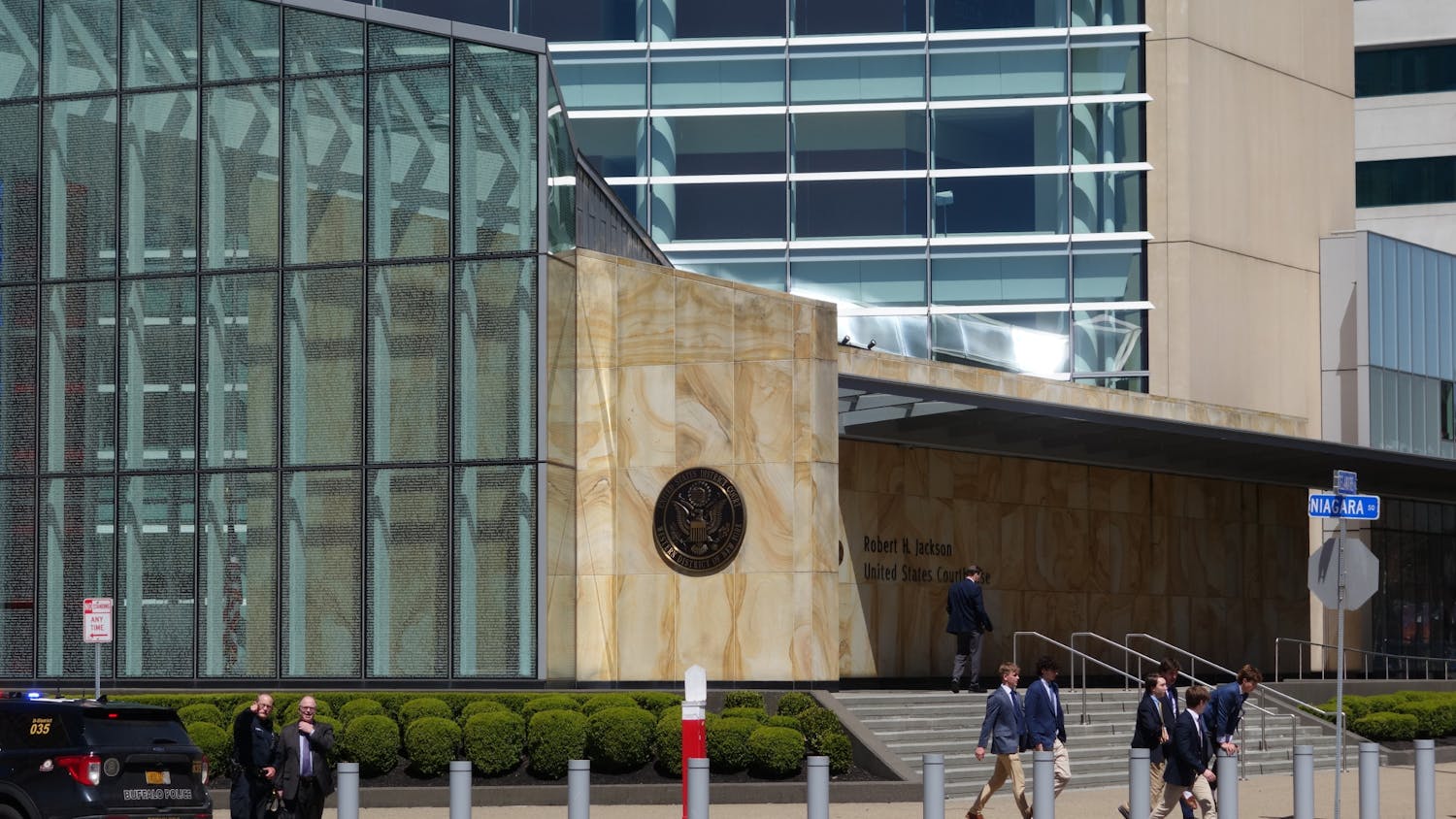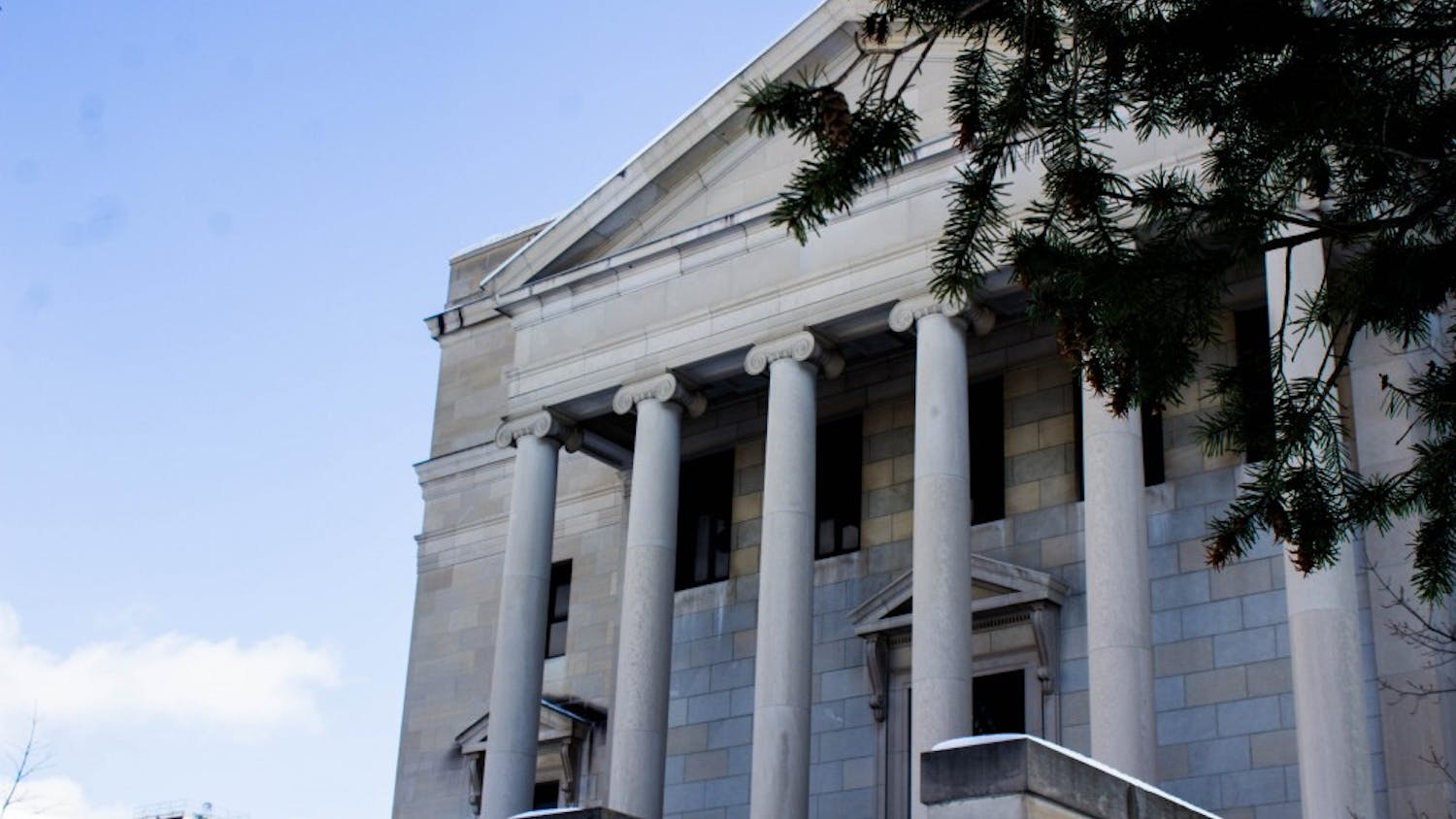Students concerned about the proposed tuition hike could feel an ease to their wallets as early as next week.
During Wednesday's Faculty Senate Executive Committee meeting, Paul Tokasz, majority leader of the New York State Assembly, announced the assembly is proposing a slightly lower tuition hike than the $1,200 hike proposed by Gov. George E. Pataki in February.
While Tokasz did not offer specifics, President William R. Greiner, during Tuesday's "Talk of the University" on WBFO, said he read a report indicating the assembly is going to suggest an increase of $1,000.
Greiner said a tuition hike of $1,000 would only be acceptable if the state is planning on generating an extra $200 per student to make up for the difference. Otherwise, he said, the university is being short changed.
Tokasz said the bulk of the revenue used to decrease the tuition hike will be generated from personal income taxes, which are expected to raise $1.3 billion to $1.5 billion in funds.
To lessen the severity of Pataki's proposed $400 million to $600 million cuts to higher education, Tokasz said, the Assembly is also proposing to increase the state income tax.
If the proposal is put into effect, Tokasz said the higher education cuts could be limited to between $175 million and $375 million.
"The reality is there are still going to be cuts," said Tokasz.
In addition, Tokasz said, the assembly is looking to restore funding to programs such as the Educational Opportunity Program.
"We have a wonderful system that, frankly, hasn't been getting the support that it needs," he said.
According to Tokasz, the Assembly acknowledges UB's role in Western New York as an "economic engine."
"UB is a large employer, and we understand what that means to the economy," said Tokasz.
Additional revenues will be gathered from other sources, such as a licensing fee placed on video lotteries, which, according to Tokasz, is expected to generate between $200 million and $300 million.
Madeline Placencia, a freshman psychology major, said she does not see the point in reducing the tuition hike if the additional revenues will be generated through public tax dollars.
"Either way, we will still be affected," Placencia said. "I really do not see much of a change in the new proposal."
In addition to restoring funding for higher education, the Assembly is also looking to restore funding for grades kindergarten through 12, as well as health care.
Although the new budget may be passed by the assembly as early as next week, Tokasz said, the proposals are expected to face opposition from Pataki, who is staunchly opposed to raising the personal income tax and has the power to line-item veto the budget without limitations.
Prior to passing the 1998 budget, Tokasz said, Pataki vetoed over 1,200 line items.
Samuel Schack, chairman of the Department of Mathematics, said he sees an advantage to an abrupt increase in tuition, as opposed to a gradual increase over the years, because students would currently be paying the same amount anyway.
"All you have to do is talk to anyone who is graduating now to see if they would have liked that added predictability," said Schack.
According to Tokasz, SUNY would benefit from beginning its lobbying earlier in the budget process.
Contrary to the beliefs of many groups, Tokasz said, the budgeting process begins in the fall rather than Feb. 15, and the sooner groups get their voices heard, the better.
"Groups need to spend a little more time in what is called the 'legislative off-season'," said Tokasz.
Greiner said early lobbying is very difficult due to the way that the SUNY system is structured.
"We just can't walk into the governor's office so easily, because of the hierarchal way SUNY is organized," Greiner said. "We need to focus our efforts on the chancellor."
The FSEC also discussed National Collegiate Athletic Association policy changes that will alter the guidelines for the admission of athletes under the Individualized Admissions Program.
According to a memorandum from Sean Sullivan, vice provost for enrollment and planning, the new NCAA guidelines would allow UB to accept students with lower SAT scores, provided the prospective students have a correspondingly higher grade point average.
Under the new guidelines, students may be admitted to a university with an SAT score as low as 620, as long as their high school grade point average is above 3.0.
Judith Adams-Volpe, the chair of the Faculty Senate Admissions and Retention Committee, said that although she disagrees with the changes, "It gets even worse than that."
The NCAA has also adjusted their core curriculum requirements, which will increase the number of years a high school student must take a language from two to three years.
Adams-Volpe said UB administers its own guidelines rather than adopting those set by NCAA.
"UB has decided that we will not accept the new minimum standards," said Adams-Volpe.
Under UB's proposed guidelines, if a perspective student athlete has an SAT score of at least 740, he or she would need to have a GPA of 2.675 to be admitted into the university. If a perspective student athlete has an SAT score of 1010, his or her GPA could be as low as 2.0.
According to Adams-Volpe, only approximately 20 athletes a year are admitted through the Individualized Admissions Program, which does not affect the majority of students.
The new policy will be proposed to the Faculty Senate early next month.




